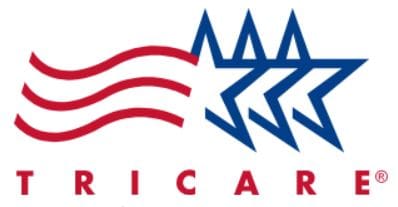We are in-network with the following insurance companies:

BLUE CROSS BLUE SHIELD

HARVARD PILGRIM HEALTH CARE


HARVARD PILGRIM – UNITED HEALTHCARE ALLIANCE

Mass General Brigham

CIGNA
We are out-of-network with the following but can provide documentation for reimbursement:

AETNA

TUFTS

TRI-CARE EAST

UNITED HEALTH CARE
We provide a Good Faith Estimate for all Private Pay Patients.
Insurance Frequently Asked Questions
Having speech therapy coverage simply means that you are eligible to receive speech therapy services. But in most cases, your coverage includes some financial responsibility. Typically with speech therapy, you will be responsible for a copayment, coinsurance, and/or deductible for each visit. These costs are determined by your health insurance company and depend on the plan you and/or your employer have chosen.
A copay, or copayment, is a fixed dollar amount predetermined by your health insurance that is due at each appointment.
Coinsurance is a fixed percentage of the allowed amount for each appointment which you are responsible to pay. For example, if your health insurance plan has an “80-20% coinsurance”, your health insurance will pay 80% of the allowed amount of the cost of the visit, while you are responsible to pay the remaining 20%.
A deductible is the total amount you are responsible to pay before your health insurance will make payments toward any healthcare expense (not just treatment at Back Bay Speech Therapy). For example, if you have to meet a $1,000 deductible, you are responsible to pay the entire allowed amount for each appointment until you have spent $1,000 on services subject to a deductible (some health services are covered without having to meet your deductible, but that is individual to each health insurance plan). In other words, you are paying the amount your health insurance company would pay if you didn’t have a deductible. Once your deductible is met, your financial responsibility will change. You will either be responsible for a copay, a coinsurance, or your health insurance could cover all of your future health care expenses.
We offer private payment plans for evaluations and therapy. You may also seek “out of network” coverage with your insurance company directly, to see if reimbursement through your plan is available.
We agreed to a set amount for each service provided with every insurance company we are in-network with, saving you money. Our administrative staff bills in-network insurance companies directly to allow you to focus on making progress in therapy.
A therapist is out-of-network if they don’t have an agreement with your health insurance company and set their own professional fees.
Call your insurance carrier ask these questions when speaking to your insurance company about “out-of-network” benefits:
- Does my plan include “out-of-network” coverage for speech and/or occupational therapy?
- Do I have an annual deductible for out-of-network speech and/or occupational therapy? If so, how much?
- Is a limit on the number of visits your plan will cover per year? If yes, How many?
- What is the reimbursement for out of network benefits?
Some insurance companies determine an “allowed amount,” which caps the session fee that they’ll cover. If your insurance has determined $100 is their “allowed amount” per session, at a 25% coinsurance rate, your insurance company will still only reimburse you up to $75, no matter what the therapist’s session fees are.
In other words, if your insurance has an allowed amount of $100 but your therapist’s session fees are $200 per session, you won’t get reimbursed more; you’ll still be reimbursed $75, and will be ultimately responsible for $125.
(Claims are forms that are sent to your insurance company to receive reimbursement for sessions you paid for out of pocket.)
Please note, if we are out-of-network with your insurance, we do not submit any claims on your behalf. We will provide you with monthly superbills for you to submit to your insurance with detailed visit information. We also cannot guarantee you will receive reimbursement for services but will provide you with the documentation necessary to submit for reimbursement. Knowing your out-of-network insurance benefits is your responsibility. Please contact your insurance company with any questions you may have regarding your coverage. We know insurance can be confusing so please give us a call with any questions.
